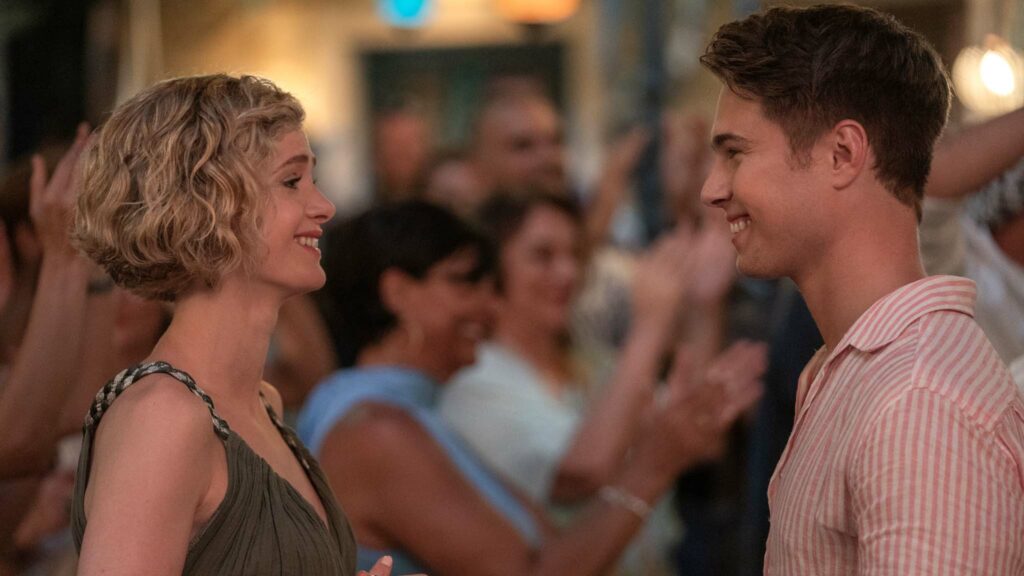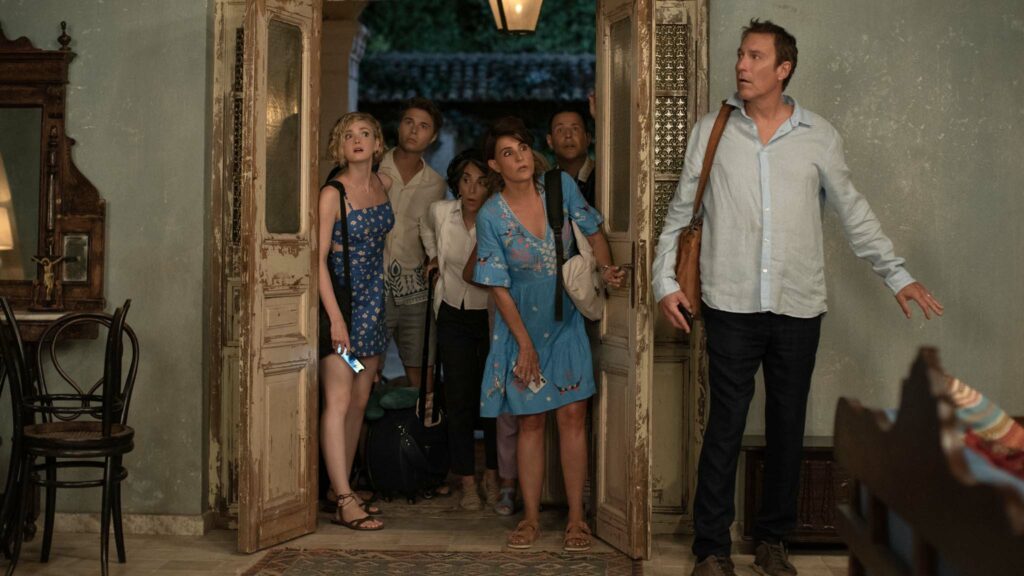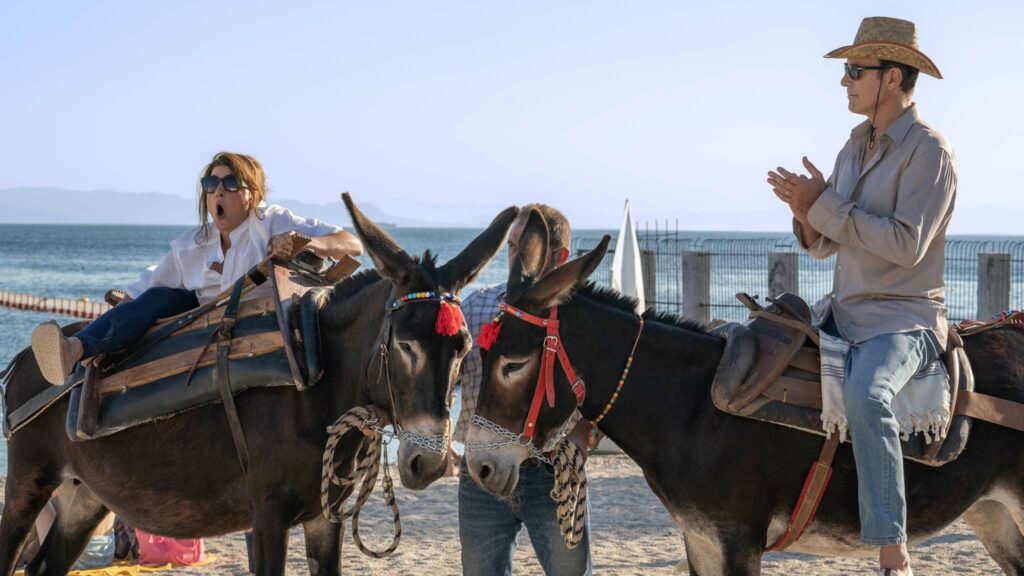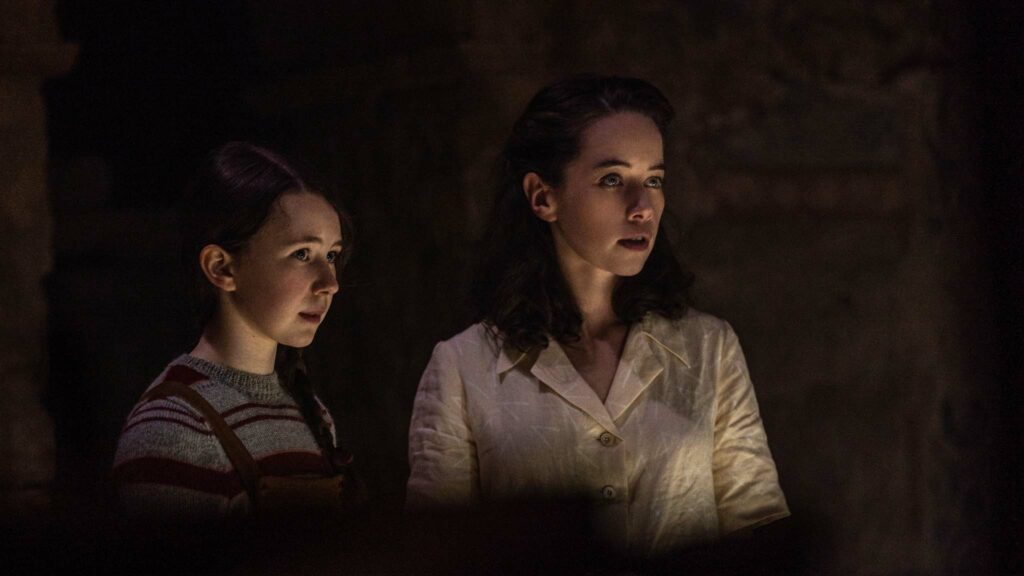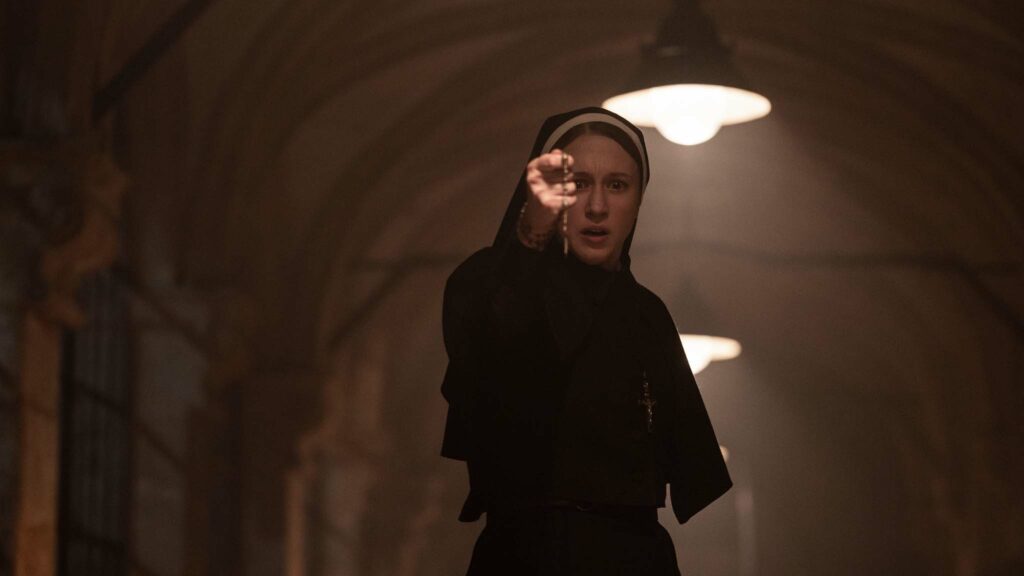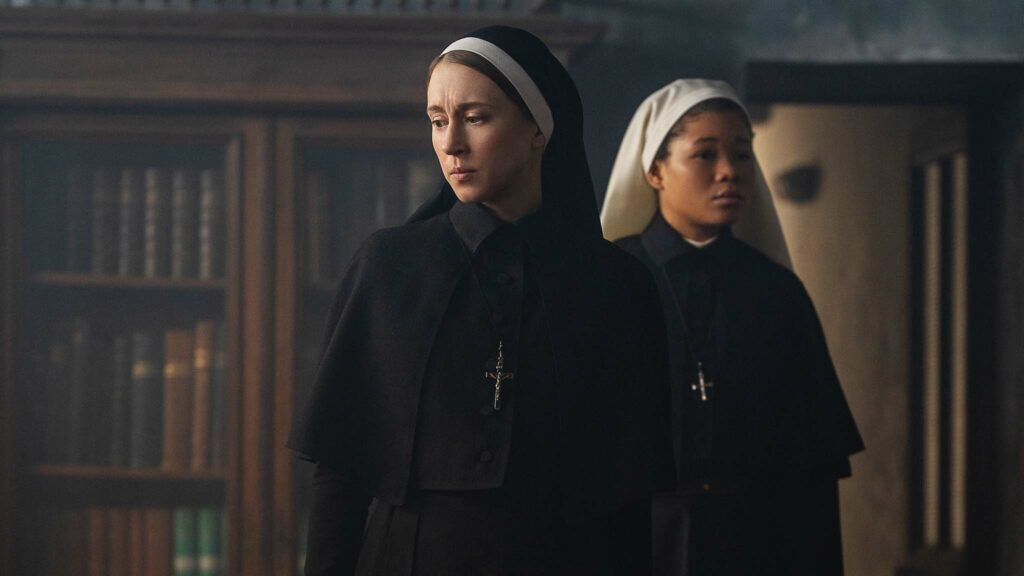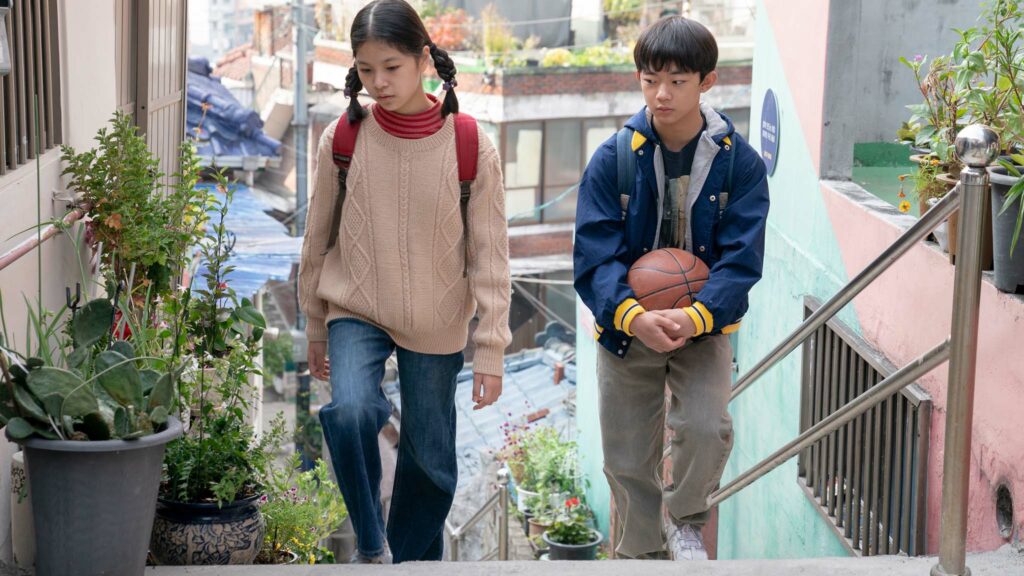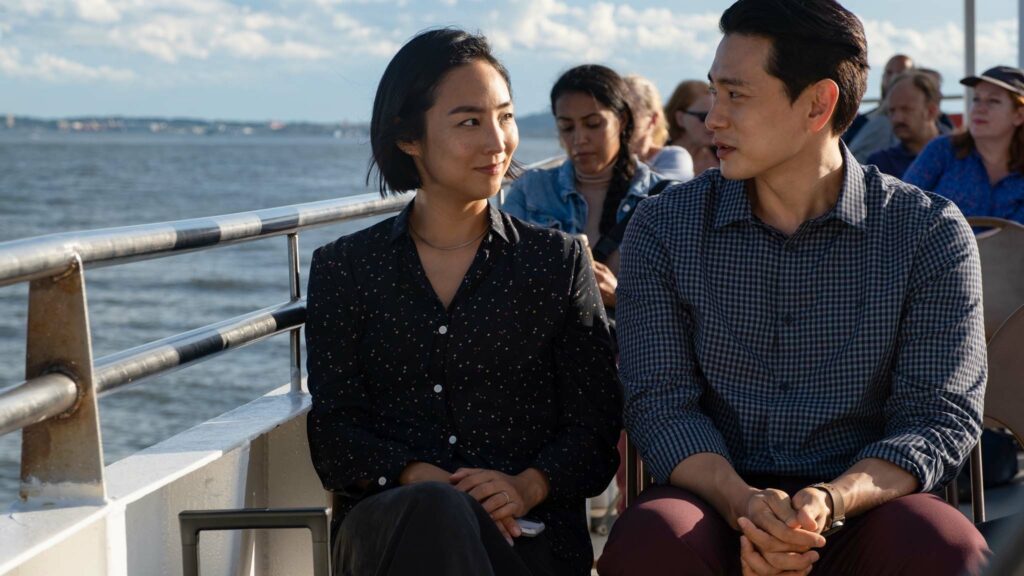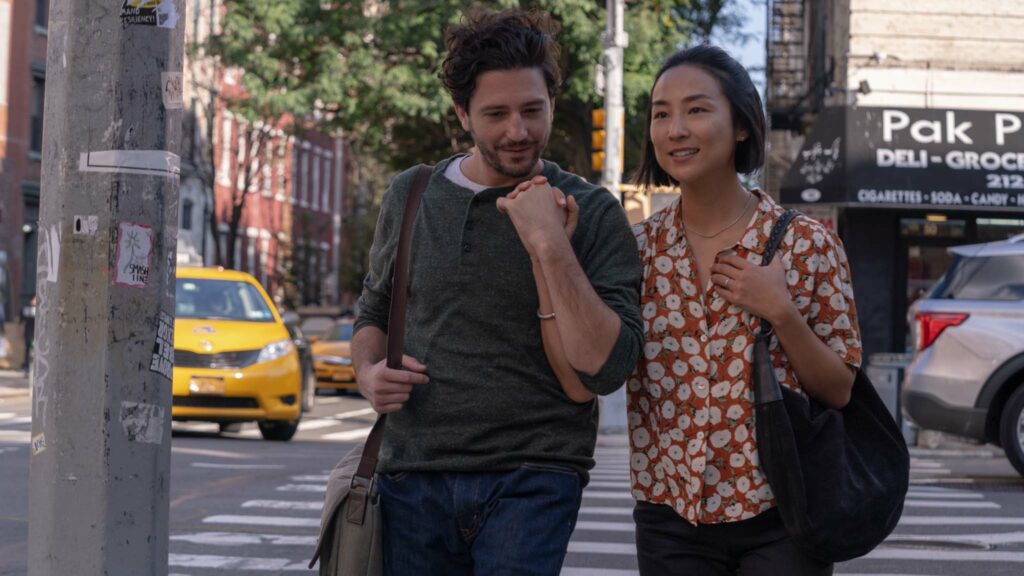Comedy
My Big Fat Greek Wedding 3 (12A)
Review: My Big Fat Greek Wedding was one of the sleeper hits of 2002, generating more than 300 million dollars worldwide at the box office from a production budget of five million dollars. The dysfunctional Portokalos clan return in a tepid romantic comedy sequel written and directed by Nia Vardalos, which has all the appeal of a bowl of Greek yoghurt that has been left out in the sun. My Big Fat Wedding 3 is dedicated to the memory of actor Michael Constantine, who played patriarch Gus. His image lingers in a montage of family photographs that opens the third instalment and succinctly distils the plots of the original film and a 2016 sequel.
Vardalos’s script musters a couple of decent laughs in a little over 90 minutes. It’s a disappointingly low hit rate compared to earlier instalments. Physical humour like one character’s ham-fisted attempts to mount a donkey feels forced and the franchise’s undisputed scene-stealers Andrea Martin and Maria Vacratsis are denied polished one-liners to repeat their gleeful daylight robberies. “I thought my husband came back from the dead!” quips one of the pair after she is rudely woken from her sleep by an inquisitive goat. Some of the audience may still be snoring at this point.
Toula Portokalos (Vardalos) prepares to honour her father’s dying wish by taking the clan to his picturesque birthplace and safely deliver his lovingly handwritten journal into the possession of three childhood friends. Family matriarch Maria (Lainie Kazan) is slowly slipping into the grasp of dementia so she remains safely in Chicago while the rest of the madcap entourage heads to sunnier climes. Toula’s doting husband Ian (John Corbett) joins his wife along with her grooming-obsessed brother Nick (Louis Mandylor) and aunts Voula (Martin) and Frieda (Vacratsis).
Ian and Toula’s spirited daughter Paris (Elena Kampouris) is embarrassed to discover Aristotle (Elias Kacavas), the first date she ghosted, has been enlisted as Voula’s personal assistant for the excursion. Arriving into Athens, ebullient town mayor Victory (Melina Kotselou) greets the Portokalos party and shepherds them to a rustic home-from-home where stony-faced resident Alexandra (Anthi Andreopoulou) rules the roost. Far from the family-run Dancing Zorba’s restaurant, generations reconnect with their Greek roots and learn valuable lessons about forgiveness.
My Big Fat Greek Wedding 3 is one gung-ho gallivant up the aisle too many, milking our affection for familiar characters until our patience runs as dry as the river that used to serve Gus’s hometown. Pacing plods and conflicts are resolved with surprisingly little effort on the part of family members. Vardalos gift-wraps happy endings for everyone on screen, but for us, finding someone to love in the wedding party feels like a labour of Hercules.
Find My Big Fat Greek Wedding 3 in the cinemas
Horror
The Nun II (15)
Review: Bad habits are repeated in The Nun II, a lacklustre ninth instalment (and counting) of The Conjuring Universe, which extends the murderous rampage of demon Valak in dimly lit set pieces that employ familiar jump tactics to feign edge-of-seat suspense. The eponymous antagonist played by Bonnie Aarons was introduced in The Conjuring 2 to strike fear into the hearts of paranormal investigators Ed (Patrick Wilson) and Lorraine Warren (Vera Farmiga) ahead of a standalone 2018 feature, which traced the source of evil to an abbey in early 1950s Europe.
Michael Chaves, director of The Conjuring: The Devil Made Me Do It, presides over a shock-starved sequel which affirms the first rule of supernatural horror films – evil never dies – and unleashes a rampaging demonic goat for its centrepiece sequence of hide and seek. Taissa Farmiga reprises her role as the wide-eyed instrument of the Lord, who mistakenly thought she had banished Valak using a vial containing the blood of Christ and must now repeat the feat – or die trying – by harnessing the power of a different religious artefact. The historical hokum provides a flimsy dramatic hook for small-scale carnage every time a character wanders alone down a darkened corridor, oblivious to otherworldly villainy slinking out of the shadows.
Four years after Sister Irene (Farmiga) first encountered the hellish harpy in a habit in the auspicious surroundings of the Abbey of St Carta in Romania, the fresh-faced disciple of God has relocated to a religious order where the most pressing concern is convincing strong-willed Sister Debra (Storm Reid) to go to confession. Other nuns are blissfully unaware of Irene’s past until Cardinal Conroy (David Horovitch) arrives for an urgent audience. Valak has returned, cutting a murderous swathe across Europe. “In that abbey, you performed a miracle. The church needs another,” implores the holy man.
Irene departs in haste for the last known sighting in Tarascon, France, and Debra risks the ire of the Abbess (Fulvia Patrizia Olivieri) to provide spiritual support. Meanwhile, at a girl’s boarding school located in an old monastery, haughty headmistress Madame Laurent (Suzanne Bertish) forbids young charges from venturing into the decrepit chapel. Ancient evil lurks in the dust-filled gloom and teacher Kate (Anna Popplewell), her bullied daughter Sophie (Katelyn Rose Downey) and resident handyman Maurice (Jonas Bloquet) will soon experience its wrath.
The Nun II commits multiple sins, the greatest being an aversion to visceral, skin-crawling terror. Stakes never feel high, even when several innocent children and one hastily sketched bully are in peril, and a frenetic finale teeters precariously on the precipice of goofiness. By the time director Chaves is going batty in a belfry, we’re counting blessings that the order of service clocks in under two hours.
Find The Nun II in the cinemas
Romance
Past Lives (12A)
Review: During a tender scene at twilight in writer-director Celine Song’s achingly beautiful drama, two aspiring writers discuss Inyeon, the Korean notion of providence or fate, which dreamily supposes strangers whose clothes brush as they pass in the street are destined to collide because of past relationships. “That’s just something Koreans say to seduce someone,” smirks the woman. Destiny exerts an undeniable, gravitational pull on every heart-rending frame of Past Lives, a melancholic meditation on missed opportunities inspired by Song’s life (she grew up in South Korea, moved to Canada with her family and now lives in New York with writer husband Justin Kuritzkes).
Nothing is left to fate in the playwright’s impressive debut feature. We feel characters’ yearning and regret ripple off the screen across three timelines, each 12 years apart, elegantly distilled into bilingual conversations and silent glances. It’s a masterclass in understatement and restraint, reminiscent of Richard Linklater’s Before trilogy, focusing on connections between richly drawn, star-crossed protagonists who articulate the churn of emotions beneath their placid surfaces. Song’s experience as a playwright nourishes a clearly defined three-act structure and sparse, naturalistic dialogue.
In the charming, earliest segment, 12-year-old academic high-flyer Na Young (Moon Seung-ah) nurtures a crush on classmate Hae Sung (Leem Seung-min) in Seoul. “I will probably marry him,” the girl confides to her artist mother (Yoon Ji-hye), who organises a first date between the children as a happy memory before the family, including Na Young’s filmmaker father (Choi Won-young) and younger sister, emigrates to Canada. Na Young changes her name to Nora and the children lose touch.
Twelve years later, Hae Sung (now played by Teo Yoo) reconnects over Zoom with Nora (Greta Lee), who has relocated from Toronto to New York. The intensity of their online connection distracts Nora from dreams of becoming a writer so she suggests an emotional timeout. “We’re just taking a brief break,” she assures a crestfallen Hae Sung. Days later at a writers’ retreat in Montauk, Nora meets Arthur (John Magaro) and they contemplate Inyeon before a first kiss. Twelve years pass and Nora and Arthur are now married. Hae Sung visits New York from South Korea, supposedly on vacation, and Arthur astutely imagines the dramatic tension if literary art were to imitate life: “In the story, I would be the evil, white American standing in the way of destiny…”
Past Lives will be a strong contender for next year’s Academy Awards, assuredly stacking up the ‘what ifs’ as the central trio of Lee, Yoo and Magaro navigate the undertows and rip currents of relationships across decades. “This is my life and I’m living it with you,” Nora assures Arthur in bed one night. We’re thrilled to be living it with her and feel every sob, sigh and devastating body blow.
Find Past Lives in the cinemas


